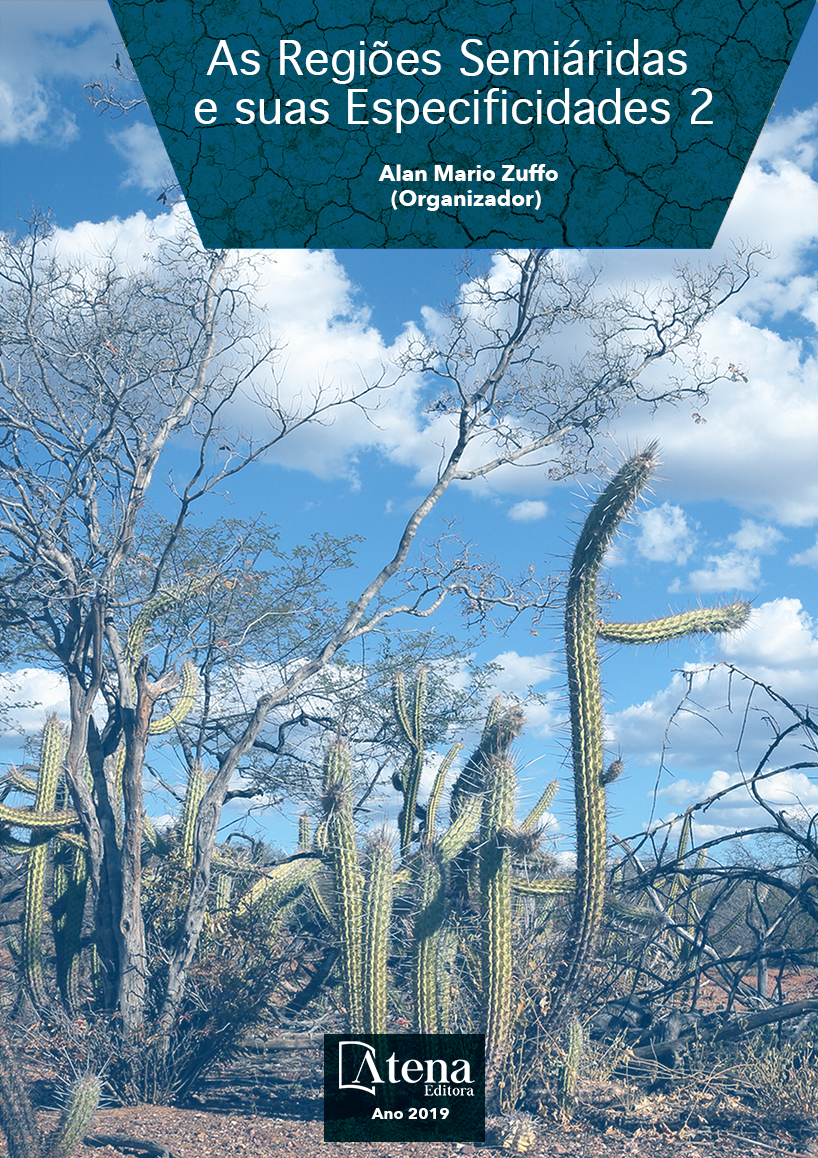
DIVERSIDADE DE ESPÉCIES ESPONTÂNEAS EM CULTIVO AGROECOLÓGICO DE SISAL
O cultivo de sisal é estabelecido
em sistema de monocultura, em regiões de
solos pobres e com escassez de chuvas.
Esses fatores associados ao baixo retorno
econômico, desencadeiam na ausência de
tratos culturais e redução da produção e
produtividade. Em paralelo, a cultura tem
sido severamente acometida pela podridão
vermelha causada pelo fungo Aspergillus
niger. O objetivo deste trabalho foi avaliar
a diversidade de espécies espontâneas no
segundo ano de cultivo do sisal, sob manejo
agroecológico, enfocando suas potencialidades
funcionais como possibilidades de incremento
para geração de renda das famílias e mitigação
dos efeitos da podridão vermelha. As práticas
de manejo adotadas foram adubação orgânica
de fundação, capinas nas linhas de plantio;
adubação verde de cobertura com a espécie
Poincianella pyramidalis, retiradas de rebentos
e aplicações do medicamento homeopático
Natrum muriaticum 5CH. O experimento de
campo foi instalado em blocos casualizados
com quatro tratamentos e cinco repetições. Os
tratamentos foram: T1 = Adubação Verde (P.
pyramidalis); T2 = Aplicações de N. muriaticum;
T3 = Adubação Verde + Aplicações de N.
muriaticum; T4 = Controle. A diversidade de
plantas na área foi avaliada pelo método de
parcelas, com parcelas de 1m², com os quais
avaliou-se os índices de diversidade ecológica.
Os resultados demonstram incremento de
biodiversidade, por reativação do banco de
sementes da área, surgimento de grande
número de herbívoros. Identificação de plantas
com múltiplas funcionalidades, dentre as
quais destaca se a malva branca que possui
flavonoides, com potencial antioxidante, que
podem ser explorando como incremento para o
sistema produtivo.
DIVERSIDADE DE ESPÉCIES ESPONTÂNEAS EM CULTIVO AGROECOLÓGICO DE SISAL
-
DOI: 10.22533/at.ed.91619150313
-
Palavras-chave: Agroecologia, Agroecossitema, Biodiversidade, Espécies Espontâneas, Bioativos.
-
Keywords: Agroecology, Agroecosystem, Biodiversity, Spontaneous Species, Bioactives.
-
Abstract:
The cultivation of sisal is
established in a monoculture system, in regions
of poor soils and with scarce rainfall. These
factors associated with the low economic
return, trigger in the absence of cultural dealings and reduction of production and
productivity. In parallel, the crop has been severely affected by the red rot caused by
the fungus Aspergillus niger. The objective of this work was to evaluate the diversity
of spontaneous species in the second year of sisal cultivation, under agroecological
management, focusing on their functional potential as an incremental possibility to
generate income for families and to mitigate the effects of red rot. The management
practices adopted were organic fertilization of the foundation, weeding in the planting
lines; green cover fertilization with the species Poincianella pyramidalis, removed from
shoots and applications of the homeopathic drug Natrum muriaticum 5CH. The field
experiment was installed in a randomized block with four treatments and five replicates.
The treatments were: T1 = green manure (P. pyramidalis); T2 = applications of N.
muriaticum; T3 = green manure + applications of N. muriaticum; T4 = Control. The
diversity of plants in the area was evaluated by the plots method, with plots of 1 m 2, with
which the ecological diversity indexes were evaluated. The results show an increase in
biodiversity, due to the reactivation of the area ‘s seed bank, the appearance of a large
number of herbivores. Identification of plants with multiple functionalities, among which
the white Malva that possesses flavonoids, with antioxidant potential, can be explored
as an increment for the productive system.
-
Número de páginas: 15
- Carla Teresa dos Santos Marques
- Erasto Viana Silva Gama


